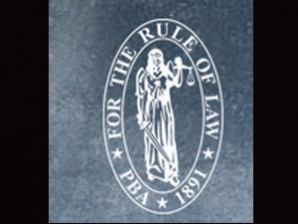
In its 61-page petition filed Friday, the Philippine Bar Association (PBA), through legal counsel Rodel A. Cruz, cautioned that the law served as a tool to suppress free speech particularly during periods that “our society faces a dilemma” and when “the status quo is challenged”, citing the possibility of access to online media outlets being restricted and blocked by the government on the pretext that it has libellous content.
PBA said the Cybercrime Law was “a piece of class legislation that discriminates against netizens and online journalists.”
It said that while the law was well intentioned in suppressing criminal behaviour, it also could “stifle legitimate expression that is protected under our Constitution.”
The PBA said they have a “sober analysis” of the Cybercrime Law and found several provisions that raised serious constitutional issues.
These provisions include:
Sec. 4(c)(4), which criminalizes libel, not only on the Internet, but also on “any other similar means which may be devised in the future;”
Sec. 6, which raises by one degree higher the penalties provided for by the Revised Penal Code for all crimes committed through and with the use of information and communications;
Sec. 7, which provides that, apart from prosecution under the law, any person charged for the alleged offense covered will not be spared from violations of the Revised Penal Code and other special laws;
Sec. 12, which authorizes the real-time collection of traffic data;
Sec. 19, which authorizes the DOJ to block access to computer data when such data “is prima facie found to be in violation of the provisions of this Act.”
PBA urged the high court to stop the implementation of the said provisions and “after due consideration” declare them null and void.
“We join others in standing against statute that fails to strike a balance between the promotion of the general welfare and our individual freedoms. We express our dissent against measures that allow the State to discriminate against netizens while granting itself broad and sweeping powers to the detriment of the inalienable and fundamental rights that we have reserved for ourselves under our Constitution,” PBA said.
On Tuesday, the high court will deliberate on all 11 petitions assailing the constitutionality of the Cybercrime Prevention Act of 2012. The high court deliberation is the same day that the Department of Justice (DoJ) will hold its dialogue with critics of the Cybercrime Prevention Law.